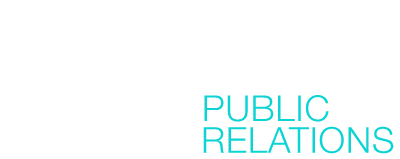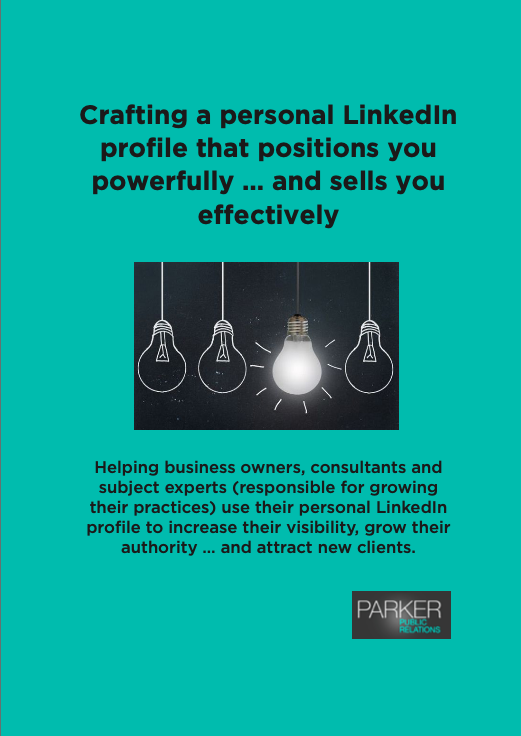You’ve never met Scott Morrison or Anthony Albanese and yet come Saturday you’ll be prepared to vote one of them into the country’s key leadership position.
Why is that?
They’re brilliant at personal branding (albeit with the help of their PR and marketing staff). Although you’ve never formally shaken hands with them, you feel like you know them – what they stand for, what they’re passionate about, their strengths and weaknesses and the kinds of backgrounds come from.
You know that the prime minister was born into a devout Christian family and began dabbling in politics from the age of nine, distributing “how-to-vote” cards to support of police officer cum politician father. You also know that Albanese comes from a working-class background and was raised in public housing by his mother who was determined his life would turn out to be better than hers.
You feel like you know them and, like it or not, will trust them with your vote on Saturday.
For CEOs, business owners, coaches, consultants or professionals and B-B executives responsible for client acquisition or business development, this is no different.
The more people know, like and trust you … the more likely they are to use your services or consider doing business with you.
Welcome to the 101 of personal branding – one of the most powerful weapons in your marketing and public relations arsenal!
In the simplest of terms, a personal brand is the marketing of the individual over the business. In some cases, a personal brand outshines the company that person works for or owns. Think Elon Musk, Mike Cannon-Brookes, Richard Branson and Tony Robbins
Research shows that having a strong personal brand not only builds the authenticity of your business and grows your thought leadership, but it also results in faster sales conversion rates than business branding efforts otherwise would.
Lets face it – people do business with people, not brands!
How to Build a Strong Personal Brand
OK so you know that having a powerful personal brand is a critical to building the credibility, likeability and reputation of your business.
But how do you get started and what’s involved?
Step 1 – Self-reflect on what you have to offer
Given that your personal brand is the unique mix of your skills, expertise, passion, experience and know-how, get laser sharp on what these are.
Also reflect on what it is that differentiates from everyone else out there and the big value and key outcomes customers and clients can anticipate from using your services. Perhaps you have skills others don’t have, you are known for getting the job done, have won multiple awards for you work or have considerable overseas experience which is now in demand in Australia.
Bottom line, why should people want to do business or work with you?
Step 2 – Getting clear on your ideal audience is critical to personal branding
Next, figure out who your ideal customer is. Get crystal clear on who exactly they are. Drill down to the industry they come from, where they are located geographically, even down to the job title and role they hold.
Once you know who they are, determine how you can help them. Do your research, paying special attention to their challenges and any key concerns they may have.
Having this vital information at your fingertips will not only enable you to position yourself powerfully as the expert that addresses their issues but will inform your content moving forward, ensuring that you are the one who is answering your client’s questions and addressing the critical gaps in their knowledge.
Step 3 – Create your personal branding tagline
Now that you are clear on what you do and who you serve, create your unique value proposition or personal branding tagline.
This is a useful exercise regardless of whether you need to update your social media bio, introduce yourself at a business event or develop an elevator pitch.
Your tagline/pitch should clearly state who you help, how you help them and the big results you help them achieve.
I help businesses and individuals rapidly move from anonymity to heightened visibility.
I help private businesses navigate the complexities of their tax obligations throughout the life cycle of their organisations.
I help sporting organisations, listed companies, SMEs and individuals avoid and resolve disputes of all types.
Step 4 – Learn from the experts when it comes to personal branding
Another thing you can do when branding yourself is to take a peek at other thought leaders and experts in your industry or area of expertise. See what their personal brands look like and how they engage online and in person.
Read their blog posts and other content they publish online. Use that content to inspire your brand, but don’t copy anyone. Not only will that make you look bad, but it won’t be genuine.
Consider how you can use other brands to help inspire the creation of your own.
Step 5 – Determine your tactics and communications channels
Typically, these would include social media, publications, blogs, trade journals, public speaking, podcasts, videos, white papers, webinars, business books … even a personal website.
However, your choice of tactics should be determined by what your clients or your community are consuming.
Where are they going to get their information, their new ideas and their inspiration? For example, my clients are primarily B-B professionals and business owners, so my social media platform of choice is LinkedIn. My clients also consume professional publications so this is where I target a lot of my media releases and specialist articles.
Keep in mind that you don’t need to use every social platform available. Instead, use the research you did on industry thought leaders and see what they use. Then, you can focus on growing your presence on a couple of platforms instead of trying to use every tactic at your disposal.
Step 6 – Develop your brand story to humanise your brand
Your story is a big part of personal branding, and you can use your story in everything you do – from your website bio and social media profiles to the content you create.
Let people how you got to where you are now – what the catalyst was for starting your business or embarking on your career choice. Also tell them about the obstacles or difficulties you have overcome and showcase some of your previous experiences or how you overcame some failures. Show some vulnerability.
People will relate more readily with you when they know where you come from. Telling a story will create a bond between you and audience and ultimately make you more relatable and likeable.
So, humanise your brand. Remember, the days of leaving your personal side at home are well and truly gone!
Step 7 – Get clear on your content
What should you talk and write about? What kinds of stories should you be telling?
Not only should your content relate to your field of work and key areas of expertise, it should be valuable, useful and insightful to your key audience. It should:
- Address their key pain points and the gaps in their knowledge
- Forecast trends
- Provide guidance and educate
- Alert people to issues in the external environment
- Provide tips and answer questions.
- Even explain difficult concepts or provide clarity on issues which are often misunderstood
Bottom line your content should address issues that matter most to your audience.
Step 8 – Building your online presence is crucial to personal branding
Now that you are clear on your expertise, passion and know-how as well as your origin story, include these in your website (personal website), blogs and social media profiles.
Also begin developing content, engaging on social media, seeking public speaking opportunities, chasing media opportunities … even developing a guide, podcast series or business book.
You may decide that engaging on social media is all you ever want to do and that is absolutely fine … provided of you course your expertise is clearly showcased in your profiles and that your engagement is done with authority and insight.
Hopefully the next time you Google yourself, your name will pop not just once but multiple times and that what it says is favourable and positions you powerfully as an authority in your field and someone clients would feel confident and comfortable working with.
Remember, personal branding is no longer an option; it is an essential part of building a strong company brand and vital to lead generation.
It will not only help you stand out from the pack, but it will promote you as a thought leader and control the perception your market has about you and your business.
Ultimately it will open doors and keep you and your business relevant!


